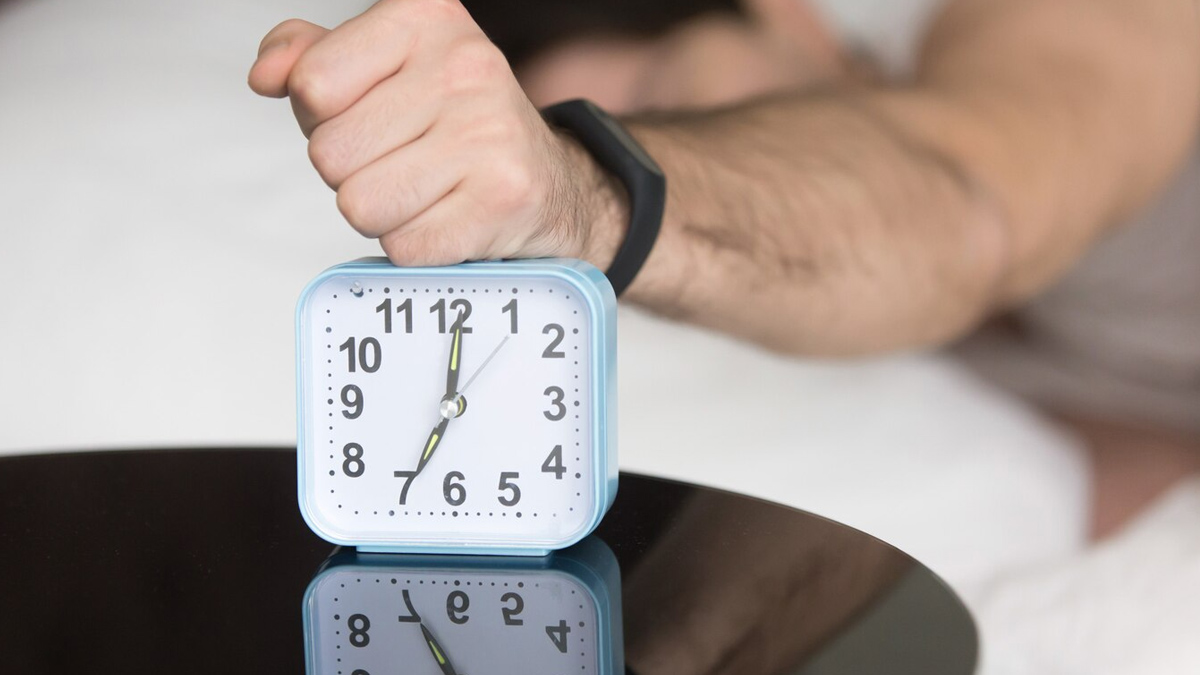
Have you ever felt excessively sleepy during the day, even after a full night's rest? If so, it might not just be regular fatigue, it could be Idiopathic Hypersomnia (IH). This neurological sleep disorder causes overwhelming daytime drowsiness, making it difficult to stay awake and alert, no matter how much sleep you get. But can it ever go away completely?
Table of Content:-
We spoke to Dr Aakash Agrawal, Consultant - Neurophysician, Manipal Hospital, Bhubaneswar, who explained this condition and its treatment approach.
"Idiopathic Hypersomnia (IH) is a neurological sleep disorder that manifests as excessive daytime sleepiness despite apparently adequate or prolonged nocturnal sleep. The term 'idiopathic' refers to a condition whose cause is unknown, making diagnosis and treatment particularly challenging," explained Dr Agrawal.
Symptoms of Idiopathic Hypersomnia

This condition can greatly affect day-to-day function. Patients often struggle to stay awake at night and experience excessive daytime sleepiness, feeling the need to nap frequently. However, these daytime naps provide no restorative benefits. Other symptoms include:
- Excessive sleep at night
- Non-restful sleep
- Excessive daytime sleepiness
- Difficulty waking in the morning
- Thinking or memory disturbances
Also Read: Daytime Sleepiness Can Be A Sign Of Health Problems. Know All About It
Possible Causes of Idiopathic Hypersomnia
According to StatPearls, IH may represent a dysfunction of the brain’s sleep-wake regulation mechanisms, specifically in brain areas called the 'hypothalamus' and 'brainstem'. "Others propose that it has something to do with neurotransmitter imbalances in the brain. Genetic factors, head trauma and common infections are other likely explanations," added Dr Agrawal.
Treatment Approaches for Idiopathic Hypersomnia

The usual treatment approaches mostly centre around managing symptoms and/or enhancing the patient's quality of life. Medications like stimulants are used to reduce daytime sleepiness and improve daytime alertness. Antidepressants can also be prescribed for their stimulating effects and not depression.
Behavioural Strategies
Another method for managing IH is behavioural strategies. "Patients are frequently instructed to keep a consistent sleep schedule, avoid alcohol and caffeine in the hours before bed and sleep in a restful environment. Some find it useful to schedule naps throughout the day," advised Dr Agrawal.
Also Read: Did You Know Night Shift Workers Have Higher Risk of Cancer? Expert Tips On How to Stay Safe
Impact on Daily Life

Idiopathic hypersomnia can make everyday life very difficult; affecting work, education, and social life. The never-ending fight with sleepiness creates frustration, isolation, and a lack of productivity. Healthcare providers, families and friends can play a positive role in managing the disease. Those with IH can benefit significantly from educational accommodations, workplace adjustments, and counselling.
Studies of IH have yet to uncover its mysterious causes or more effective treatments, but they continue. A study published in npj Genomic Medicine identified a rare genetic variant in the cleavage site of prepro-orexin associated with IH, suggesting a potential genetic predisposition.
Future studies that analyse neuroimaging and genetics data may eventually clarify the underlying mechanisms of IH. "Current sleep medications do not specifically target pathways involved in sleep regulation, however, so new compounds could lead to unprecedented breakthrough treatments for sleep disorders," added Dr Agrawal.
Bottomline
Dr Agrawal concluded, "While idiopathic hypersomnia is not completely curable with the limited tools and knowledge we currently have at our disposition, it is treatable and with ongoing research as well as new drugs in the pipeline, it may soon become a reality in a not-so-distant future."
[Disclaimer: This article contains information provided by an expert and is for informational purposes only. Hence, we advise you to consult your professional if you are dealing with any health issue to avoid complications.]
Also watch this video
Read Next
Are IBS Symptoms Worse In The Morning? A Gastroenterologist Shares Tips To Reduce Flare-Ups
How we keep this article up to date:
We work with experts and keep a close eye on the latest in health and wellness. Whenever there is a new research or helpful information, we update our articles with accurate and useful advice.
Current Version